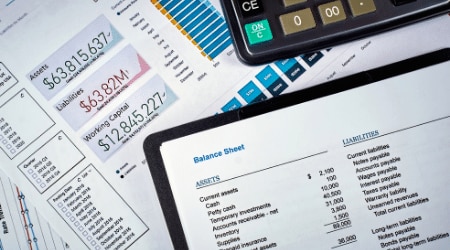What is a Trial Balance
Trial Balance Definition
A trial balance is a statement that shows the ledger account balances at a particular point in time. It lists all of the company's accounts and their respective debit or credit balances. The purpose of a trial balance is to ensure that the total of all debits equals the total of all credits.
A trial balance acts as an internal check to ensure the accuracy of the accounting entries made in a business's general ledger. It is usually prepared at the end of an accounting period, such as at the end of a month or quarter. The trial balance is used as a preliminary step to preparing a business's financial statements, including the balance sheet, income statement, and cash flow statement.
If the trial balance does not balance, it indicates that there has been an error in the recording of financial transactions. This could be due to a variety of reasons, such as an incorrect journal entry, a transposition error, or a mistake in posting to the ledger. In such cases, the accounting team must go back through their records to find and correct the error.
The trial balance has two columns, the debit column, and the credit column and the sum of all debit column entries should be equal to the sum of all credit column entries. This balance ensures that all accounting entries have been accurately recorded in the ledger and that the mathematical total of all accounts with a debit balance is equal to the mathematical total of all accounts with a credit balance.
To prepare a trial balance, the accountant takes each account's balance from the ledger and places it in the corresponding column of the trial balance. The amount is placed in the debit column if it has a debit balance, while it is placed in the credit column if it has a credit balance. Once all the accounts have been listed in this manner, the grand totals of each column are then calculated, and the totals should match.
It's important to note that the trial balance is not a substitute for financial statements such as the balance sheet and income statement. Instead, it serves as a preliminary check to detect errors and omissions in the general ledger. The financial statements are prepared based on the information from the trial balance and additional adjustments and accruals, if necessary, are made to ensure a complete and accurate financial picture.
In conclusion, the trial balance is a crucial tool for accountants and bookkeepers in ensuring the accuracy of financial statements. It is a preliminary check to detect errors and omissions in the general ledger and helps ensure the integrity of financial reporting.






